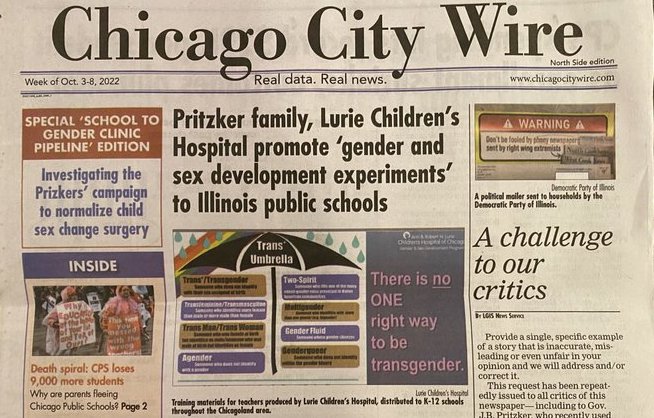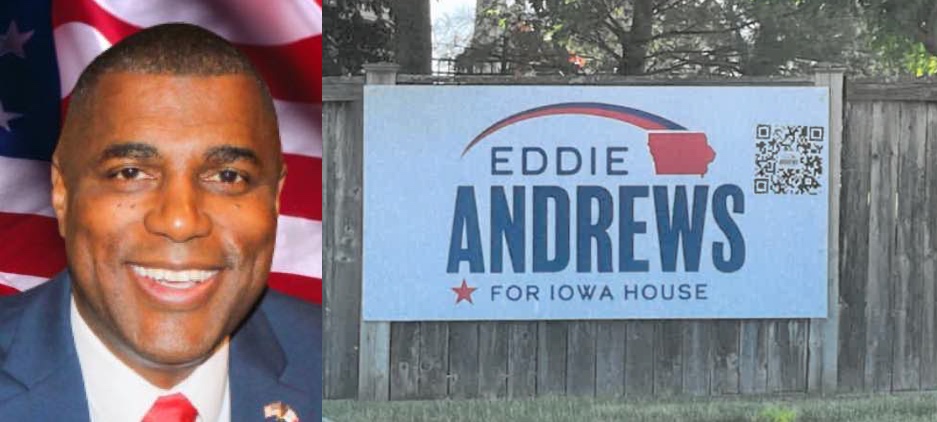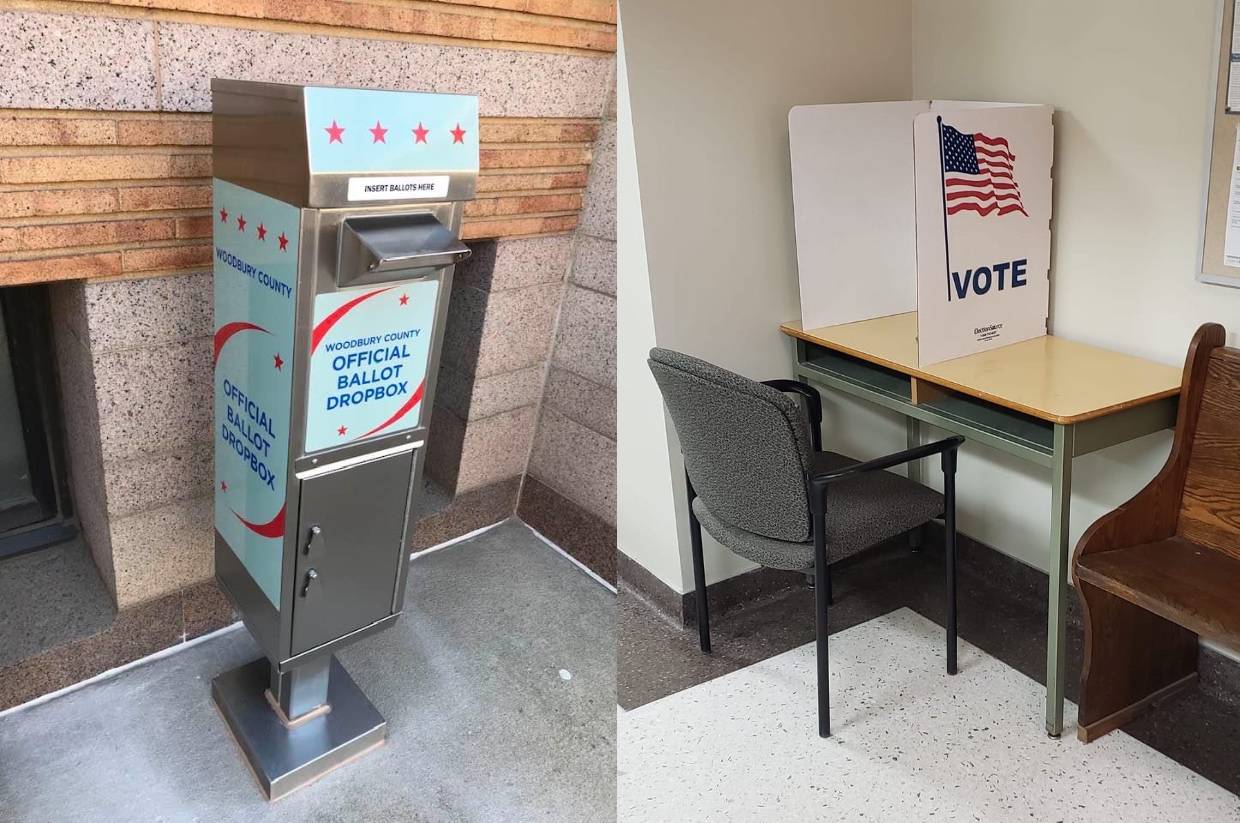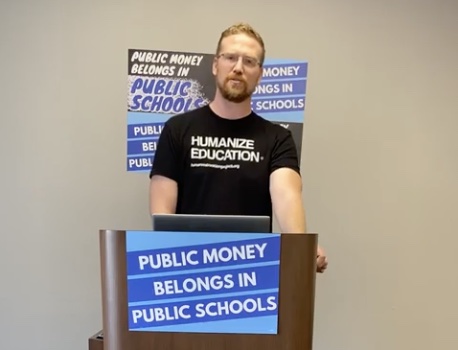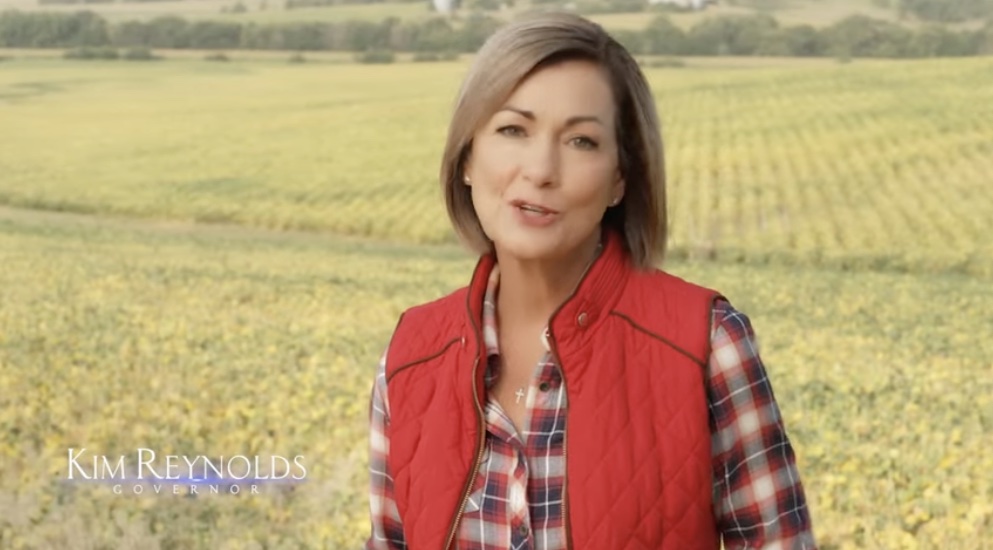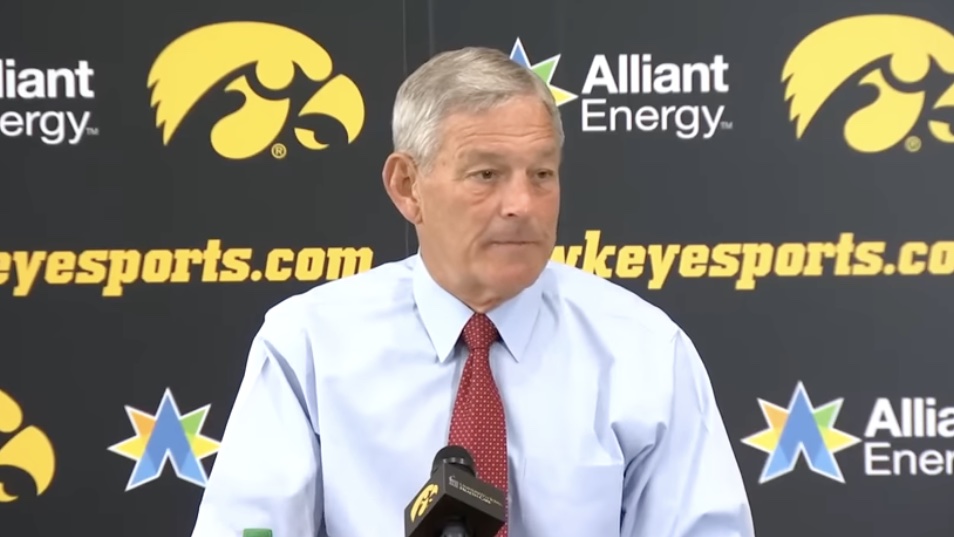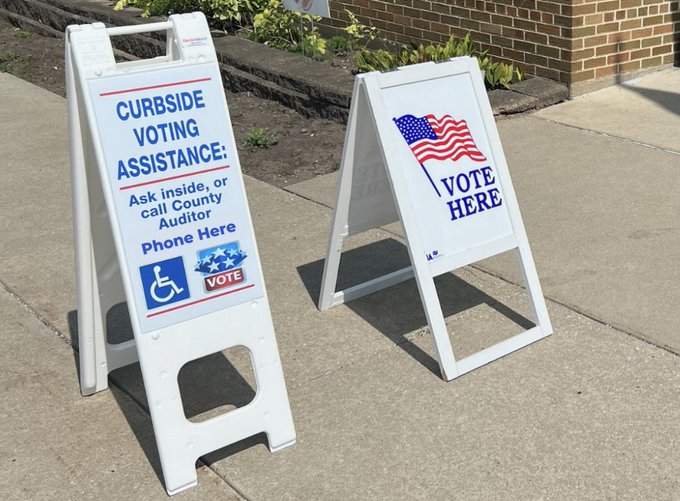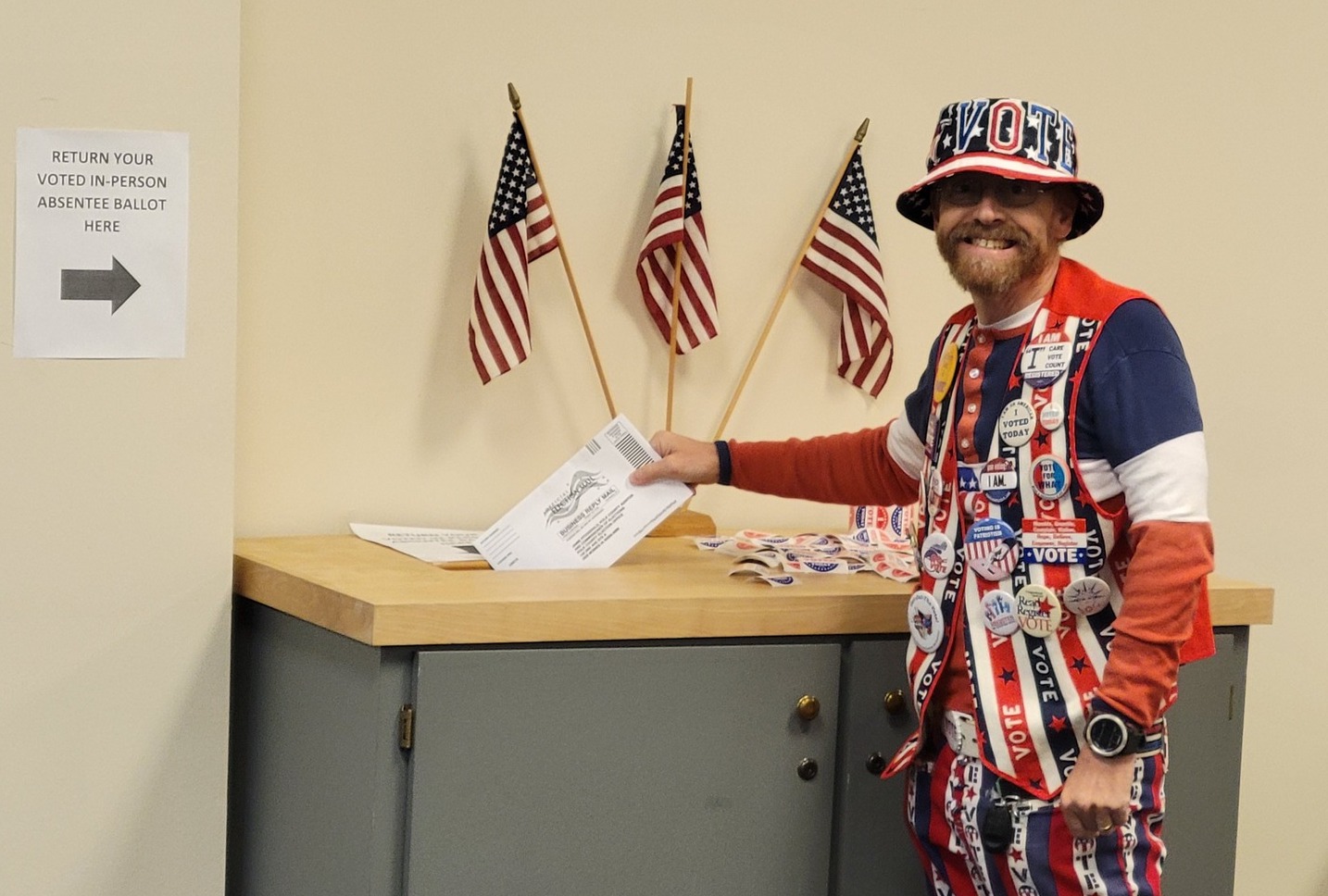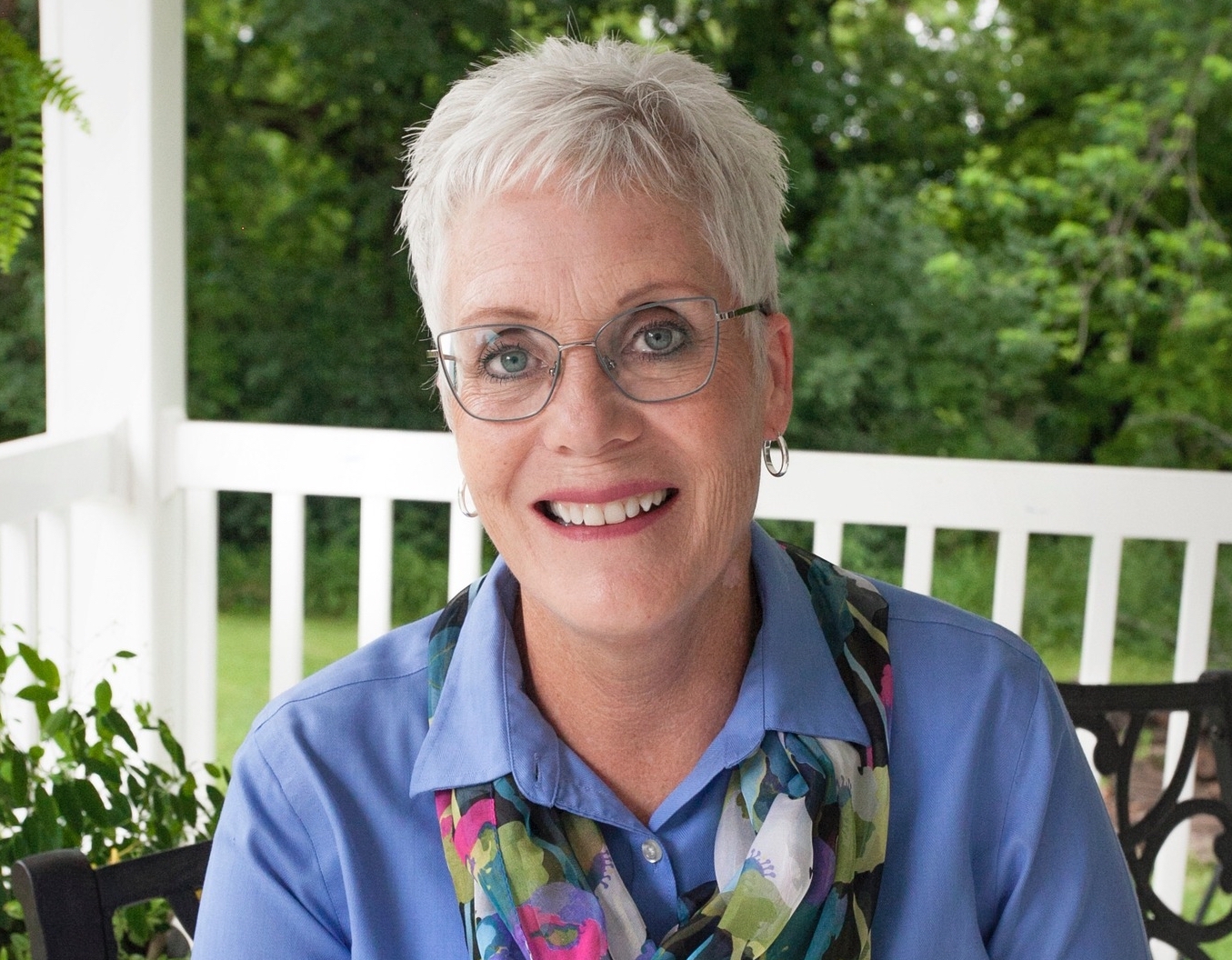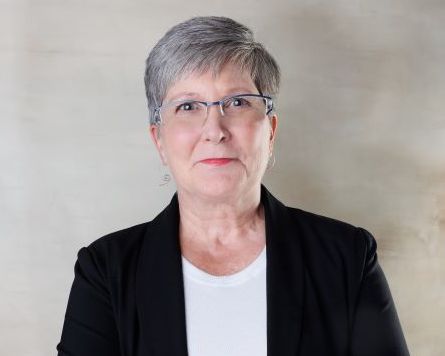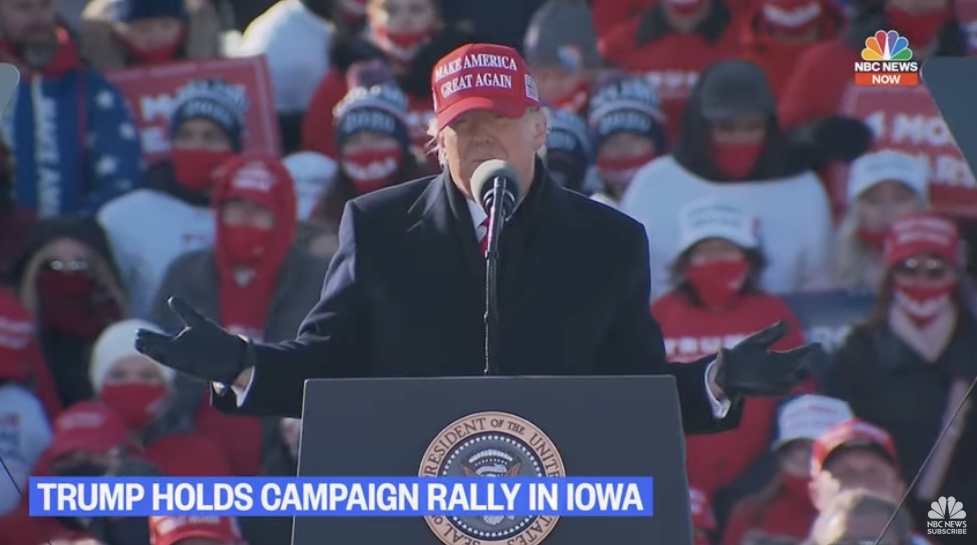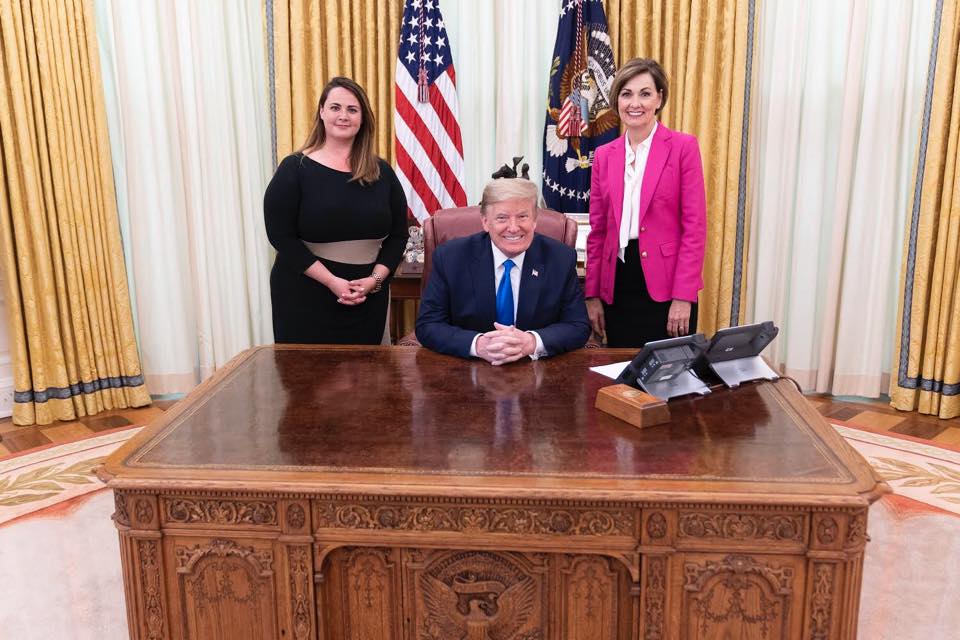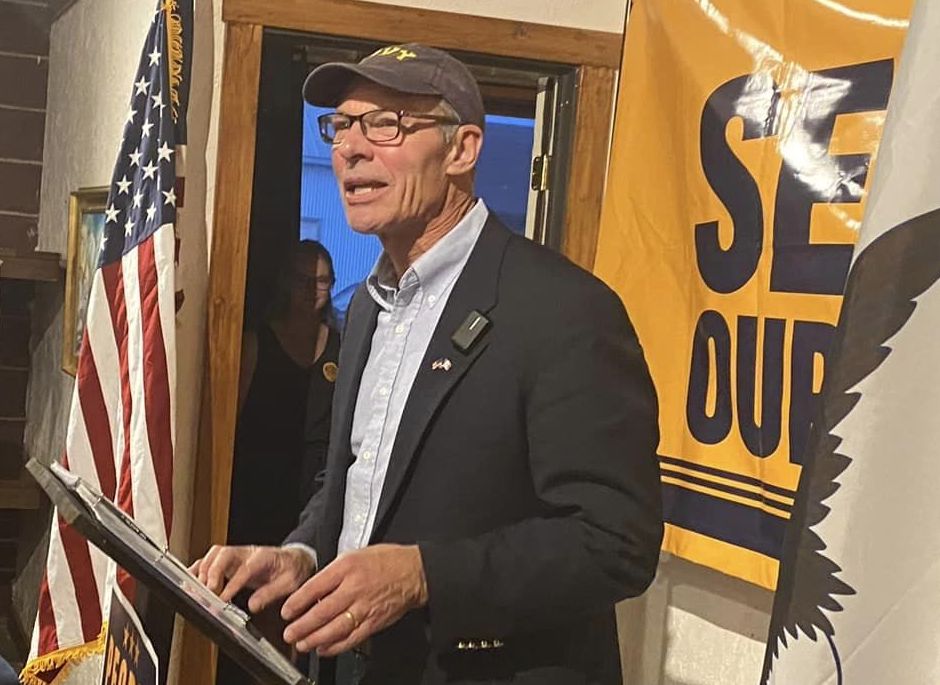Fake newspapers designed to drive Illinois voters away from Democratic candidates are being printed at the Des Moines Register’s plant, Gannett staff confirmed to Bleeding Heartland.
At least eleven printed publications, which are part of the conservative network Local Government Information Services (LGIS), have been distributed to Illinois residents since August. Sometimes known as “pink slime” journalism, such publications combine political advocacy with stories resembling neutral coverage of local news or sports. The material has the look and feel of a newspaper, but the content is more like political advertising.
Jem Bartholomew of the Columbia Journalism Review was first to report in early October that Gannett had taken over printing of the LGIS products. The previous publisher, which also owns the suburban Chicago newspaper Daily Herald, canceled its commercial printing contract with LGIS in late September, saying “Many critics cannot or refuse to differentiate between a commercial printing operation” and the Herald’s “editorial mission to be unbiased and fair.”
The Des Moines Register’s executive editor, Carol Hunter, had no comment beyond confirming in a November 4 email that “these are commercial print clients.” She provided a statement from Gannett’s corporate communications staff: “We do not discuss our commercial print clients and have no further comment.”
Continue Reading...
